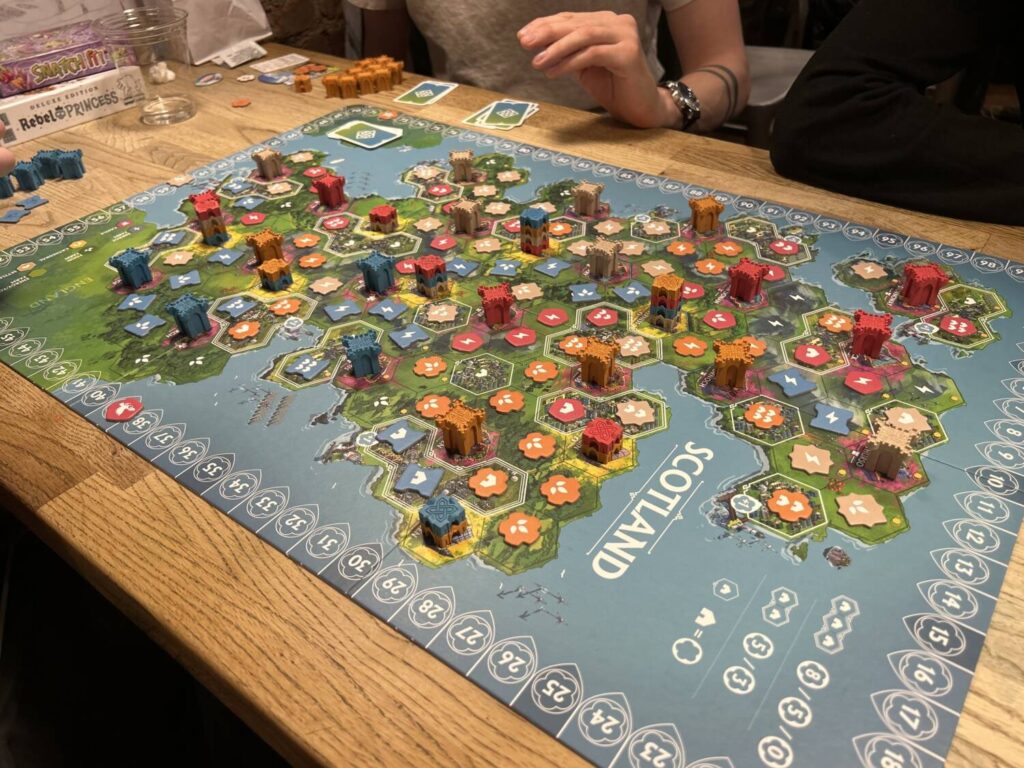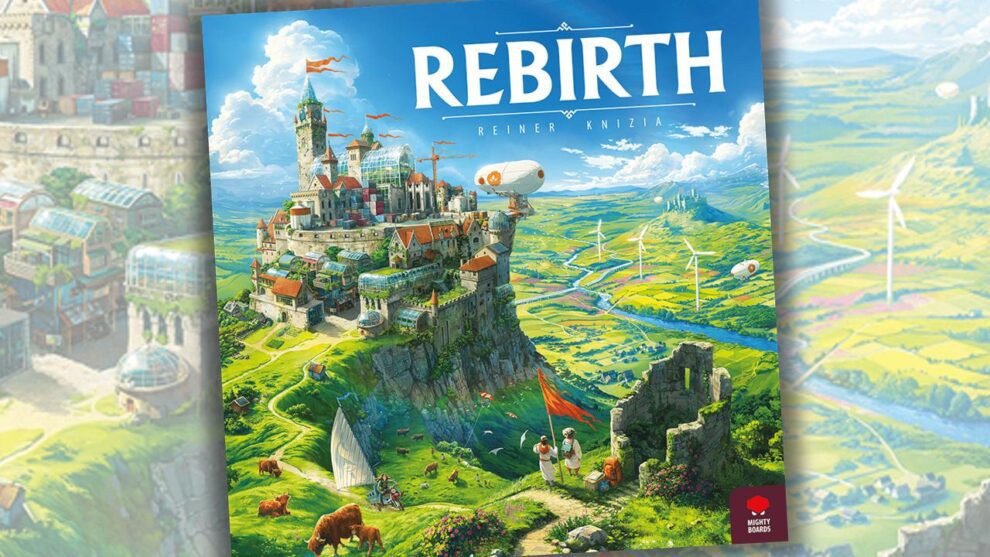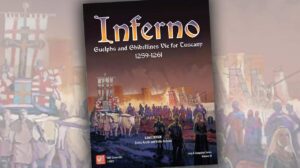Disclosure: Meeple Mountain received a free copy of this product in exchange for an honest, unbiased review. This review is not intended to be an endorsement.
Rebirth is not what you would expect at first glance. That beautiful box, with art from Anna Przybylska and Kate Redesiuk, shows an elaborate castle on a hill, surrounded by vibrant countryside. Stare at it for a moment and you start to notice the little details, the greenhouse and the highland coos, the windmills, the steampunk blimp. Everything about the presentation suggests that Rebirth is some sort of RPG-inspired epic, and a good one at that.
In reality, Rebirth is but a humble tile-layer, though you are still right to assume that it’s pretty good. This is not surprising. Designer Reiner Knizia does many things well, but he does few things better than creating rules that govern the ways in which a group of people can lay tiles upon a flat surface. Here, players take turns adding a single tile to the board, gaining points and bonuses as a result.

Turns are simple. All of your tiles sit in a shuffled, facedown pile on the table in front of you. After you play a tile for your turn, you draw in preparation for your next turn. I have grown to love the simplicity of that, the ways it facilitates smooth and rapid play. It’s hard to get too bogged down in thought when you’re only placing a single tile. Better than that, the game uses the tile draw to build tension. Everyone starts with an identical set, which means you can predict with some accuracy what moves people have at their disposal towards the end of the game. As the board situation grows more contentious, the amount of information you have at your disposal increases. It’s a beautiful arc. Better still, each player sets two tiles aside at the beginning of the game, which no other player gets to see. There is no perfect information, and your last few tiles may well be informed by desperate guesses.
The exact manner in which you score points changes depending on the side of the board you use. Both sides reward players for large contiguous tile groupings, and having the majority of Settlement icons within each Settlement group. There’s also fierce competition for control of the various castles on the board, each of which scores its owner five points at the end of the round. On the Scottish side, players have private goals. You can draw up to eight Private Goal cards by the end of the game, each of which grants you points provided you fulfill its objective. The other side shows a united Ireland. Few board games have ever dared to make so radical a political statement in so understated a manner. Ireland has public goals, which offer more points to the first player to fulfill them, some points to the second, and diddly squat to anyone else. It also has towers, which offer powerful bonuses and opportunities for combos.
Though I would have expected to prefer the Irish side, with the interactions that public goals provide, I found that they didn’t add much to the experience. I also didn’t enjoy the extra level of complication added by the towers. They weren’t all that complicated, to be honest. I suspect that’s more to do with a hard truth about Rebirth: it’s not that deep. If I’m going to play a game that feels like a relaxed ride on a Lazy River, I want it to be as Lazy as possible. That’s why I prefer Splendor to the inarguably better game that is Splendor: Duel. There isn’t quite enough here for me to want to invest those extra brain cells. It’s a minor complaint, though. I still enjoy the game.
Rebirth is solid, with excellent production and clean rules that are easy to onboard and internalize. It offers obvious, approachable points of tension to even first-time players, and plays at enough of a clip that it’s unlikely to overstay its welcome. It falls into the same category of game as St. Patrick, which I wrote about last year: this is not a game that’s going to change anyone’s life, but it’s an excellent introduction to how far a particular genre of game has come.











